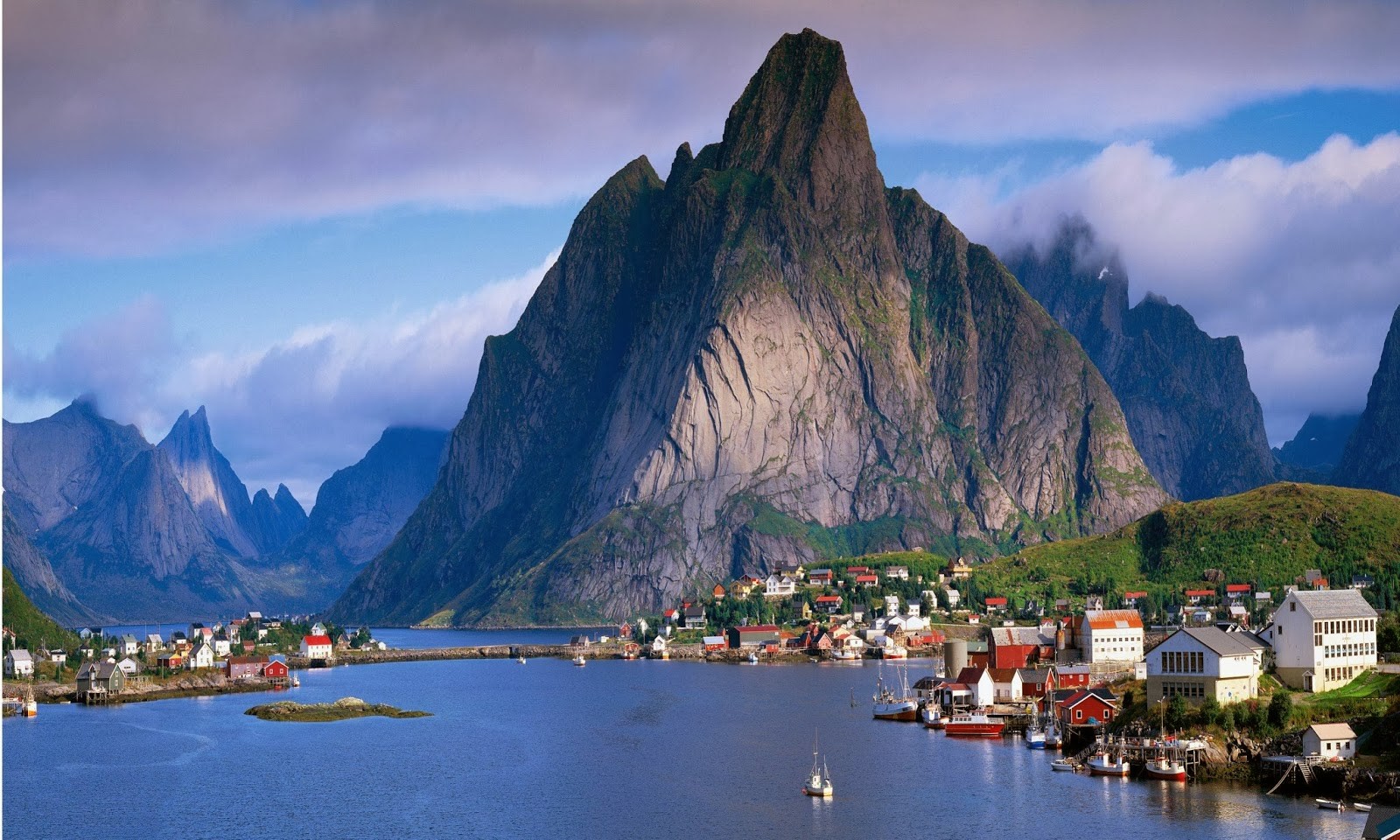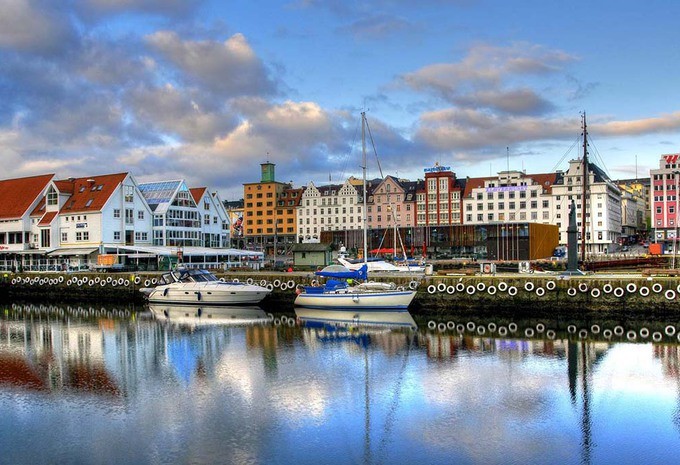Oslo: An unforgettable adventure
What degree are you studying/did you study, and at which university? In which course are you now and which Erasmus course did you do?
I’m studying for a degree in Biochemistry and Biomedical Science, at the University of Valencia. I went in the last year (4th year) of Erasmus to do half of the 2013-2014 course (there was no agreement for all of the subjects and I couldn’t have some validated), now I’m finishing the 4th (I have a project and a couple of subjects) in Valencia
How did you gain your grant? What difficulties did you face? What was your experience in this case (if you had any difficulties getting it)?
I applied to the call for submissions from the University of Valencia. In this case, I had to make a request through the university’s online platform: of all the possible Erasmus destinations for my course, I had to select 5 (in order of preference), and sit a level test that would certify me in the language (I put myself down for English B2). Both the application and language test were done in December. Afterwards, a selection of the candidates for each destination were made and the applications sorted according to the average grade of the file. In my case, I was the only one who applied for Oslo and I was shortlisted in February.
Once I was chosen, I met up with my Erasmus coordinator from UofV and began to prepare my study contract, to contact the Erasmus coordinator at the University of Oslo and to fill out the series of bureaucratic paperwork with the University of Valencia – the documentation that has to be done can be looked up at UV.es.
The management of the financial grant was the responsibility of the UofV, provided that the required paperwork was submitted on time.
Where did you do your Erasmus? For how long?

At the University of Oslo, Norway. I was there for 11 months: August 2013 to July 2014
What was the University there like?
The university is very different to Valencia. The classes were very small, we barely had 20 students in the class. And the subjects, instead of being taught for a whole semester or year are taught intensively, that is that you have a subject for five weeks and you only take that subject, and once you finish and have the exam you move onto the next subject, and so on. They are structured so that there are only two weeks of intensive theory of the subject (from 09:00 to 16:00), an intensive week of practical work (as a biochemical study, it was lab work), they give you 10 days to study and on the tenth day you have an exam on the subject. The evaluation is complimented with seminars, assignments, things like that.
Also, the correction system for exams seems much fairer to me. When you do the exam (which you do anonymously, each student is assigned a code), you do it on white sheet of paper that transfers your work to two other sheets of paper: one yellow and one pink. In this way, one of the copies of the exam is left with you and the others are sent anonymously to two different examiners. The overall grade is the average given to you by both examiners.
Are the services for foreign students adequate?
Yes, approximately 25% of the university students are on exchange. There is a huge office designed to help international students. In addition, they teach many courses in Norwegian language and culture to help us integrate.
Which is the best area to live, look for a house or halls of residence in?
There is no system in place there to rent a flat, so it’s necessary to find student housing. Sio is a company that manages all the halls of residence in Oslo. Before leaving for Erasmus you make request in order of preference and depending on the available spots, they assign you to one of the halls of residence (there are also more expensive residences depending on location, whether or not you want to share, etc).
I lived in Kringsja, the biggest halls of residence with the most international students. There were many buildings located in an area close to the forest. Each building was divided into floors, and on each floor, there were two kitchens. Each kitchen belonged to one apartment, and in each apartment, there were 6 rooms: the rooms were individual, and two rooms shared an adjoining bathroom. The kitchen was shared by everyone. I would 100% recommend going to student housing like that, there is a strong cultural background, and it quickly helps you to socialise with people from other cultures (in my kitchen we were a Pakistani, a Chinese person, an Ethiopian, a Norwegian and two Spaniards).
What’s the best area for going out and what are the best bars to have a drink in?

The downtown area, with Horgans and a couple more bars (there is only one pub area in the city centre, and it’s easy to find) was cool on the weekdays, but they charge 100 NOK (12€) entry and then the drinks are very expensive: a beer in Norway costs you €8-9, and a rum and coke is €15. But the area I liked the most was without a doubt Grunnerlokka, Oslo’s hipster district: there you could find bars with “cheap” beer (60NOK – 7-8€). There is a very cool concert hall there called Bla: there’s free live music every Sunday.
The parties that the Erasmus students had in Norway were held in the halls of residence’s kitchens, where we invited everyone, played music and drank. Going out to pubs was somewhat beyond our means.
Was there much to do in your free time, like activities? What would you recommend visiting or doing?
Leisure time in Norway is restricted to whatever’s free. It is the most expensive country in Europe and the standard of living we Spaniards are used to (going out for a beer, going out to dinner with friends or to the cinema) is impossible to do there. I went out to dinner 5 times throughout the year, and it was for kebabs and things like that, not to restaurants.
You can’t spend money on alcohol or go out to bars, but you can do other activities instead: hiking through the Norwegian forests, sledding down the mountain, cross-country skiing, swimming in a fjord. If you like nature and going on trips, then it’s incredible.

What are the best, typical foods?
The salmon, without a doubt.
Where there any customs that you encountered and that surprised you?
Norwegians are very cold, and they don’t like to interact with people or have groups of friends. Your friend "group" is restricted to 2-3 people; they don’t like being with many people at the same time and it stresses them out. Furthermore, they become independent there very early (at around 20) and they marry and have children before 24, at the same time as they are balancing their studies, of course. It is very rare to be 25 years old and not be married there. In fact, they are amazed that Spaniards become independent later on in their 30s or have children at 35. It’s something that to them is inconceivable.
What is the cost of living like?
Norway is VERY, VERY, VERY expensive. Without impulse spending, sticking only to the cost of the student housing, buying the basics (forget about buying meat that isn’t chicken, because that’s out of your price range), school costs and public transport, you could spend 800 euros per month. If you then want to go on a trip, go out for beers and pay for leisure activities, add a lot more money to that total.
What difficulties could Spanish students encounter in terms of language? And what about other problems? What issues did you encounter during your stay outside of Spain?
None, Norwegians are bilingual and even the oldest ones know English perfectly. If they know you can’t speak Norwegian, they speak to you automatically in English. In addition, the university teaching (classes, exams, assignments) is 100% in English. To immerse yourself in Norwegian they run intensive courses at the university and with those you learn very fast, but even so, Norwegian is very difficult.
What advice would you give to young people who are going to go on Erasmus? How should they face this experience before leaving and once there?
I would advise you to prepare your savings, because Norway is pricey. But if you are looking for a different Erasmus experience (that isn't 100% alcohol and parties), and want to take a chance with a totally different culture, see nature that you would have never imagined and, in short, have a complete change of scenery, this is the Erasmus exchange for you.
Why is it necessary to go on an Erasmus exchange?
It is a unique and unrepeatable experience that changes you forever. You leave as you and come back as someone completely different. All the things it brings you are positive: you learn to cope with problems, expand your mind, learn from other cultures, be in contact with people from all over the world, get to know a very different academic environment from the one you’re used to and, above all, make friends that you will never forget, and with whom you will have a relationship so, so, so strong that it surpasses that of "lifelong" friends.
P. S. During the months that I was in the Erasmus program, I wrote a blog with my memories, which might be useful for you, I’ll leave it here for you, in case you find it interesting :)
Photo gallery
Content available in other languages
- Español: Oslo: una aventura inolvidable
- Français: Oslo: une aventure inoubliable
- Deutsch: Oslo: ein unvergessliches Abenteuer
- Italiano: Oslo: un'avventura indimenticabile
Share your Erasmus Experience in Oslo!
If you know Oslo as native, traveler or as exchange student... share your opinion on Oslo! Rate different characteristics and share your experience.
Add experience →


















Comments (0 comments)